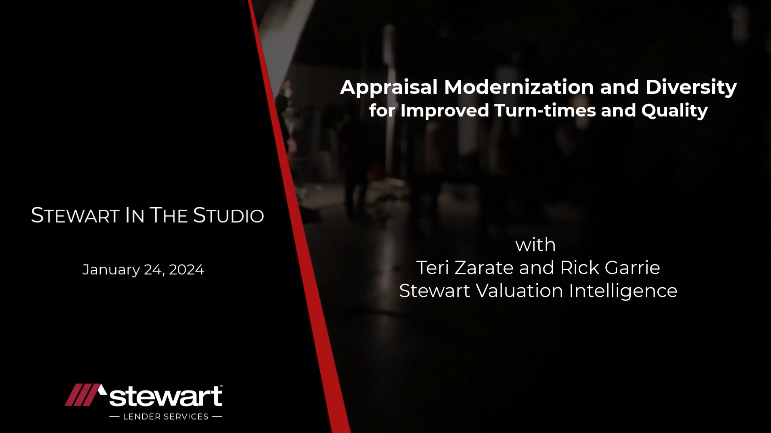In August, Fannie Mae and Freddie Mac released updates to AIR, the set of standards that both GSEs (government-sponsored enterprises) have in place to ensure the valuation process for residential properties is conducted both objectively and impartially.
The original iteration of AIR was published in October of 2010 after the passage of the Dodd-Frank Financial Reform Act. These most recent policy updates are based on learnings from data collected by both GSEs over the past decade.
Most of the updates are centered around mortgage brokers and the ability to order real estate appraisals. When it comes to the valuation process, the following are some of the most pertinent changes — both updates to previous requirements as well as new additions.
Updates to Existing Requirements
These changes represent updates to (or clarifications on) previously existing sections of AIR policy:
Who Qualifies as a “Restricted Party”?
This update helps define the term “restricted parties.” With the new changes, Fannie Mae describes restricted parties as “the loan production staff who are responsible for generating loan volume or approving loans, as well as their subordinates.” This does not include those who oversee credit administration or credit risk management.
Rules Surrounding the Use of Lender-Supported Appraisal Request Portals
The question here is whether or not brokers can use web portals to request appraisals if those portals were set up by a lender or their authorized agent. The answer? Yes they can, but only if the portal in question doesn’t allow the broker to select an appraisal management company (AMC).
AMC Selection
With this change, the GSEs clarify that brokers may not choose an AMC to work with if a lender has relationships with more than one. The lender will take on the responsibility of making that selection.
New Guidelines
The following updates are some of the new additions to AIR that valuation and appraisal professionals should pay particular attention to:
Defining the Scope of AIR
One of the new items added to AIR helps establish that its guidelines only apply to what the GSEs call “mortgage origination transactions,” which do not include servicing activities such as loss mitigation, mortgage insurance (MI) removal, pre-foreclosure transactions and the like.
The Role of Restricted Parties
Another new addition settles the matter of whether restricted parties can play an active role in onboarding, selecting or offboarding independent parties. The updated guidelines state that restricted parties cannot participate in any capacity, and that these processes must be facilitated by parties that are not involved in loan production.
Restrictions Relating to Appraisal Orders
Can lenders instruct brokers to choose an AMC from a list of pre-approved companies? According to new AIR guidance, they may not. Nor can brokers be involved in selecting any protected party.
Time- or Eligibility-Based AMC Selection
Something that these updates make abundantly clear is that brokers cannot and do not have a say when it comes to choosing an AMC. This is hammered home even further with a change that clarifies brokers may not select an AMC even if the choice is subject to a pre-approved pool of companies or made on a timetable or with an eligibility window (versus a loan-by-loan basis).
What Do These Changes Mean for You?
For a further breakdown of these and the rest of the changes to AIR, Fannie Mae offers a comprehensive FAQ section devoted to the new updates. Or, if you have questions about what these changes mean for your own valuations, the SVI team is available to help — contact us today.


